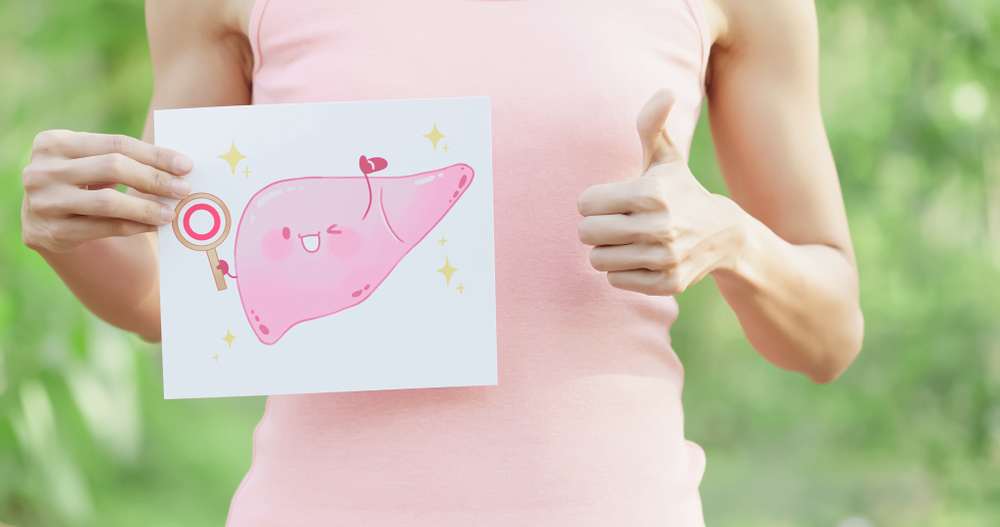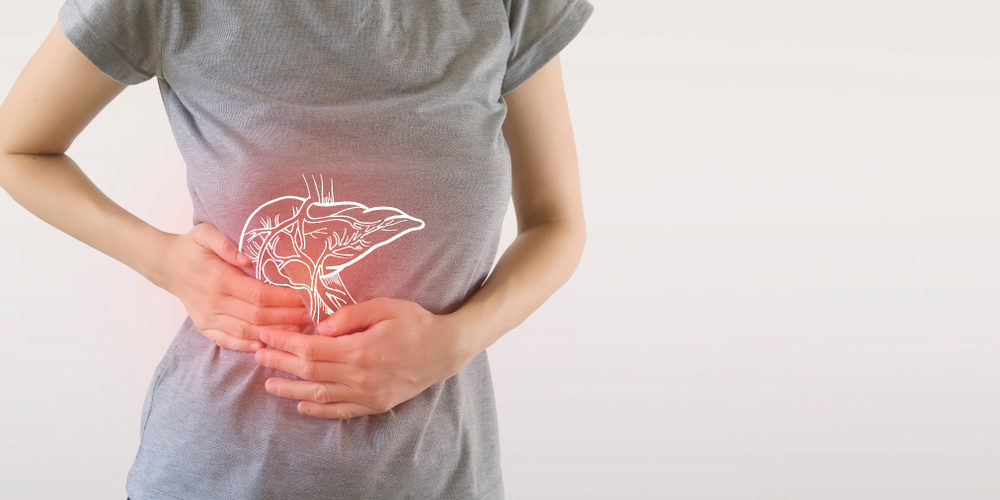Have you ever really stopped to think about how your liver relates to your overall health?
It’s an often-overlooked organ, mostly discussed when it comes to issues such as excessive alcohol consumption and alcoholism – but your liver does so much for your well-being.
Liver health is essential because the liver supports the others organs in your body and processes everything you breathe in, ingest, or put on your skin.
Its primary and most important purpose is to cleanse the blood of impurities and toxins. The liver converts these toxins into nontoxic waste and gets rid of it through urine, stool, and sweat.
Because we are constantly bombarded by toxins in the modern world, it’s imperative now more than ever that we take the health of our liver into consideration and make healthy choices to supports its function.
Liver Problems
Everyone should prioritize the health of their liver but there are certain people that have a higher risk of developing liver problems such as those who are obese or have high cholesterol, diabetes, or a family history of liver problems.
Also, those who drink alcohol, use drugs or take medications for prolonged periods of time need to be particularly careful about their liver health.
While most people assume liver issues only happen to those who drink too much, there is a condition known as NAFLD (nonalcoholic fatty liver disease).
This one of the most prevalent liver conditions and is becoming so common that it will eventually become the number one reason for liver transplants.
When it comes to NAFLD, the liver cells contain too much fat. This can eventually lead to a condition known as NASH (nonalcoholic steatohepatitis) which includes significant inflammation. If left untreated, NASh can lead to cirrhosis and liver cancer.
To treat or avoid NAFLD, the safest and most effective form of therapy is weight loss resulting from a balanced lifestyle of healthy foods and activity. However, there are other ways that you can effectively promote liver health as well.
Improve Your Liver Function With These 4 Tips:

1. Eat a Liver-Healthy Diet
In order to promote good liver health, you can revamp your diet for liver healthy foods. Many studies have shown that those with liver issues tend to consume diets that are high in calories, saturated fats, and refined sugars.
To keep improve your liver function, eat lots of fruits and vegetables as well as high-fiber plants such as legumes and whole grains.
Try to stay away from processed sugar, salt, trans fat, refined carbs, and saturated fats including only a very small amount in your diet.
Here are some foods you should incorporate into your daily meals:
- Coffee: lowers abnormal liver enzymes
- Greens: prevents fat buildups
- Fish: lowers inflammation and fat levels
- Oatmeal: increases energy and fills you up
- Avocado: protects the liver
- Milk/low-fat dairy protects the liver from damage
- Olive oil: controls weight and lowers enzyme levels
- Green tea: reduces fat absorption
2. Use Herbal Food Supplements
In addition to eating a healthy diet, there are certain herbal food supplements you can take to boost your liver function.
Keep in mind that herbal supplements are not a replacement for a healthy diet but can help boost the effects of the good foods you are eating.
The following herbs provide anti-inflammatory properties and help protect the liver from viruses and toxins. Plus, you can easily cook with them and incorporate them into healthy dishes!
- Milk thistle
- Ginseng
- Licorice
- Turmeric
- Garlic
- Ginger
If you choose to consume these herbs in supplement form, remember that supplements are highly concentrated and the levels you ingest are not the same if you cooked with them.
Before you add any sort of herbal treatment to your lifestyle, it’s important that you speak with a qualified healthcare provider first.
Many herbal treatments can be toxic to the liver and some can be contaminated with heavy metals, pesticides, pharmaceuticals, and bacteria. Also, some herbs can negatively interact with certain medications.
Be sure to check with your healthcare provider before taking any herbal supplements.
3. Exercise Regularly
While the foods you eat account for a large part of your overall health and body weight, it’s important to include regular exercise in your schedule.
We’ve already talked about how being overweight can negatively impact the health of your liver, so it’s safe to say that regular exercise can help you maintain a healthy weight and improve your liver function.
Some studies have shown that both resistance and aerobic exercise can reduce the build-up of fat in the liver apart from weight. The research also suggests that, despite body size, those who lead an inactive lifestyle are more at risk of developing a liver issue than those who are active but the same size.
You don’t need fancy equipment or a gym membership to improve your liver health through exercise. Aim to walk 30 minutes each day and begin to introduce weight/resistance training into your week.
4. Try Natural Treatments
Just like supplements, natural treatments are only effective when paired with a healthy and active lifestyle. The most popular natural treatment for the healthy function of the liver is Traditional Chinese Medicine – most notably, acupuncture.
Acupuncture is a treatment that uses fine needles to unblock the energy channels and allow Qi to flow through your body, improving your overall health.
If you’re interested in giving this natural treatment a try, consult with an acupuncturist to learn more about how acupuncture can improve your liver function.
Final Word
Your liver works hard to filter out toxins and regulate your system – consuming a high-calorie diet full of unhealthy foods is certainly doing it no favors.
Overall, a healthy diet and regular activity are the keys to improving your liver function. By lowering your body weight, you can promote good liver health and avoid troublesome conditions such as NAFLD.
Additionally, supplementation and natural treatments are also beneficial in helping your liver stay happy and healthy!




